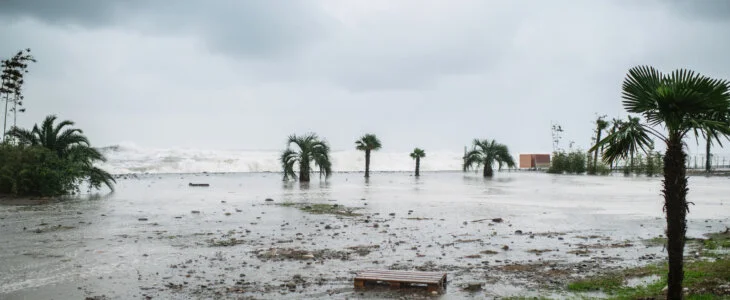Florida faces hurricanes every year, and the impact on homes and businesses continues to grow as storms become stronger and more frequent. As a result, more people are dealing with complex insurance claims and legal disputes. Recent trends in hurricane damage litigation are shaping the way claims are handled, and new legal challenges are emerging. With evolving insurance policies and the increasing role of climate change, understanding these developments can help you stay prepared and protect your rights after a storm.
Trend 1: Rise in Litigation Due to Increased Hurricane Intensity
With hurricanes becoming more intense and destructive, legal disputes over property damage have risen sharply. This trend is particularly pronounced in Florida as residents experience severe storms more frequently. When hurricanes cause widespread devastation, insurance companies often face an overwhelming number of claims. This can lead to delays, denials, or underpayment of legitimate claims, forcing policyholders to seek legal action to recover the compensation they deserve.
The growing intensity of storms is also leading to disputes over the extent of damage covered under certain policies. Homeowners and businesses are finding that insurers may argue that certain damages are not hurricane-related or fall under exclusions, leading to a denial of full coverage. This creates an additional legal hurdle for those already struggling to rebuild their lives.
In response, more policyholders are turning to litigation to challenge these decisions and ensure their claims are properly honored. By pursuing legal action, individuals can fight back against insurance companies that may be slow to act or unfair in their assessments.
Trend 2: Changing Insurance Policies and Legal Interpretations
In recent years, insurance companies have adjusted their policies in response to the increasing frequency and severity of hurricanes, leading to a rise in disputes over coverage. Many policies now include higher deductibles for hurricane-related damage, stricter exclusions, and more detailed conditions for claims. These changes can leave policyholders facing unexpected costs or coverage gaps when trying to recover from storm damage.
Legal interpretations of these evolving policies are also creating new challenges. Courts are frequently asked to determine how specific clauses should be applied in hurricane damage cases, such as whether damage from storm surges is considered flooding or wind damage. How courts interpret these provisions can significantly impact the amount of compensation available to policyholders.
As a result, policyholders often find themselves in complex disputes over the fine print in their insurance contracts. These legal battles are not only about understanding what the policy covers but also about challenging how insurance companies apply those terms to specific claims, which can greatly influence the outcome of a case.
Trend 3: Litigation Involving Climate Change and Property Damage
The growing awareness of climate change has significantly impacted hurricane damage litigation, as property owners increasingly face disputes with insurers over the cause and extent of damage. Insurance companies are more frequently attributing damage to factors other than hurricanes, such as pre-existing structural issues or climate-related wear and tear, to reduce or deny payouts. This trend is pushing more homeowners and businesses into legal battles to prove that their losses were directly caused by the storm.
Additionally, climate change is contributing to more frequent and severe hurricanes, which leads to greater property destruction. As storms worsen, the financial strain on insurance companies grows, prompting them to tighten their policies and scrutinize claims more aggressively. This has resulted in more litigation, with policyholders fighting to hold insurers accountable for covering their hurricane-related losses.
Courts are increasingly hearing cases involving climate-related factors, setting new precedents in property damage litigation. These legal decisions could shape how future claims are handled as the effects of climate change continue to evolve.
Legal Challenges: Delays and Disputes in Hurricane Claims
One of the most significant legal challenges in hurricane damage cases is the frequent delays and disputes that arise during the claims process. Insurance companies often receive a flood of claims after a major storm, which can lead to processing delays and backlogs. In some cases, insurers may dispute the extent of the damage, the cause, or the coverage limits, further slowing down the process.
These delays can be financially devastating for homeowners and businesses trying to rebuild. Disputes over policy details often lead to lengthy legal battles. Resolving these issues quickly is essential to getting the compensation needed to recover and rebuild after a hurricane.
Contact an Experienced Florida Hurricane Damage Claim Attorney
At Tomlinson Law Group, we understand the complexities of hurricane damage claims and the legal challenges that can arise. Our team is dedicated to helping you fight for the compensation you deserve, guiding you through every step of the process. Contact us today to discuss your case and explore your options.


